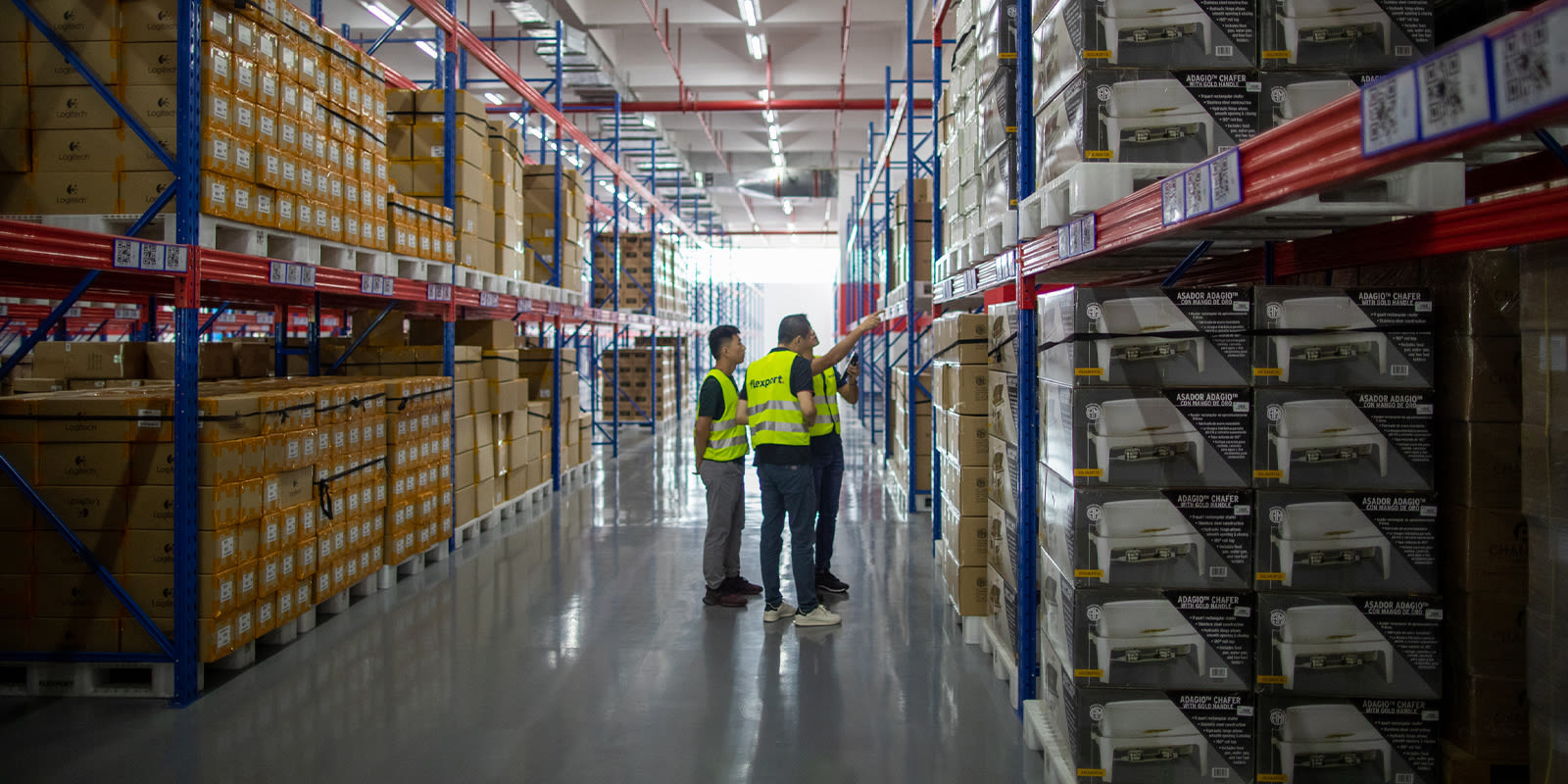
May 7, 2020
Warehouse Staff: The Unsung Heroes of the Supply Chain
Tags:
Warehouse Staff: The Unsung Heroes of the Supply Chain

May 7, 2020
As COVID-19 continues to spike demand for PPE and medical supplies, snarling the supply chain along the way, many businesses have been forced to develop contingency plans for moving, relocating, and storing their shipped goods. It’s a situation that calls for services to help relieve bottlenecks, aid swift delivery of PPE and medical supplies, keep non-essential goods in transit or storage, and maintain safety precautions to help prevent the spread of Coronavirus to individuals or freight.
Enter: warehouse staff who work to uphold service quality, while supporting frontline responders and safeguarding customer shipments during a time of unprecedented chaos.
Keeping Shipments Moving
Top of mind for many companies is if shipments will arrive on time. As high demand for PPE, medical goods, and other essentials intensifies, the normal flow of goods has been majorly disrupted.
Several factors influence supply-chain timeliness, with warehouse staff key to helping unclog bottlenecks as quickly, efficiently, and accurately as possible.
For instance, Flexport Warehousing focuses predominantly on the consolidation and deconsolidation of airfreight and LCL freight. Think of Flexport warehousing as the warehouse before the warehouse, working with trusted partners, running the baton for the next leg. Those partners include tech-enabled Warehouse partners that extend Flexport’s ability to provide distribution and fulfillment solutions for Flexport customers.
Meanwhile, Flexport warehouse staff concentrate on quick turnover, the safe breaking or building of bulk cargo, and coordinating in real time with truckers and other key supply chain partners. Now, in the era of Coronavirus, the role has become even more critical—and dangerous—requiring strict adherence to recently developed protocols that lessen the risk of contamination to individuals and goods.
Agility is at the forefront of these efforts. Warehouse staff tap into their individual resilience and their dedication to teamwork to help make shipping as easy as possible, even in a time of calamity.
The human factor is a vital counterpart to the tech-enabled promises Flexport makes to its customers. New information about COVID’s impact on the supply chain is issued daily, and the shipment lifecycle has spewed unpredictability for months.
By practicing rapid adaptability every day, warehouse teams find solutions to keep shipments moving at the right pace. High-priority PPE and medical equipment moves to the front of the line, and cargo that is less crucial for now is handled with care by teams who source or create temporary overflow storage. During times like now, especially, when congestion and uncertainty reign, some customers often need to relocate goods. When that need arises, warehouse staff relabel and divert individual pallets from the warehouse.
Other nimble adjustments include extending staff hours as team members show their commitment in a crisis, directing effort towards effective use of all warehouse capacity, and continuing to source storage alternatives.
Renewed Purpose
During this time of crisis, people are quickly realizing a long-held truth in freight forwarding: Warehouse teams are essential. Staff pivot to the needs of not just the day, but often the hour, in order to ensure urgent shipments arrive as required and other goods are safely on the way.
The big win is knowing medical supplies have a positive impact in trying times. Recently, team members in Chicago shared a moment of pride and purpose, seeing how many gloves they had the opportunity to move.
“I think people feel a strong connection to their work because they know that they are truly an essential element in keeping the supply chain moving,” notes Michael Hajatian, Director, Warehousing Operations, Americas.
About the Author

May 7, 2020


